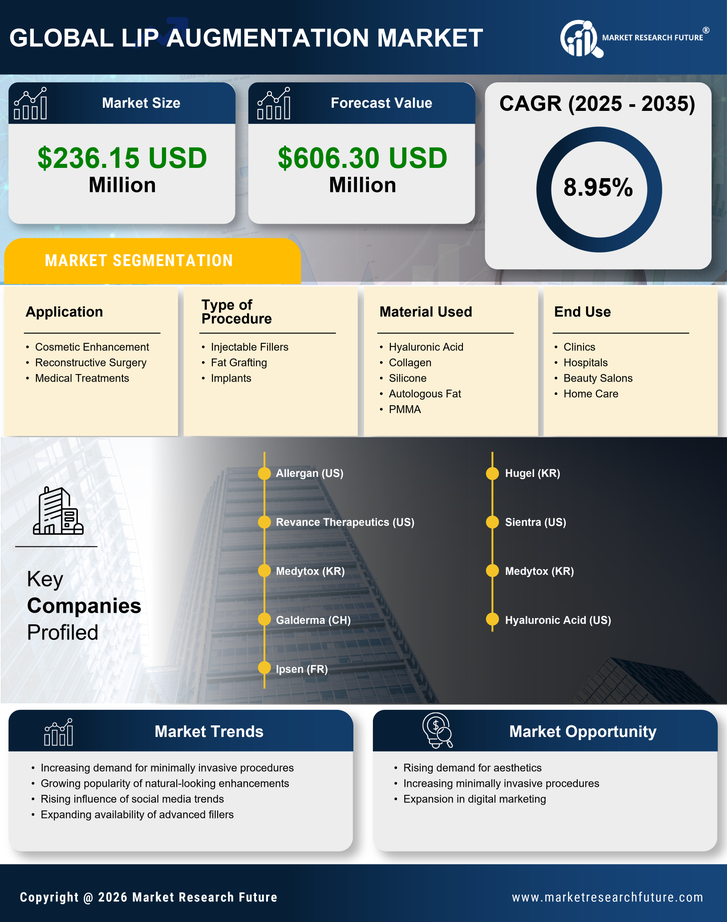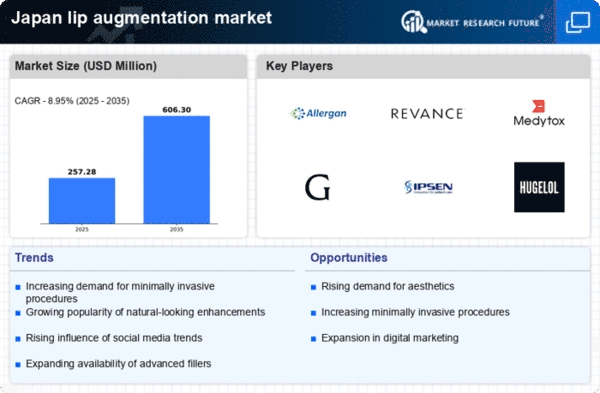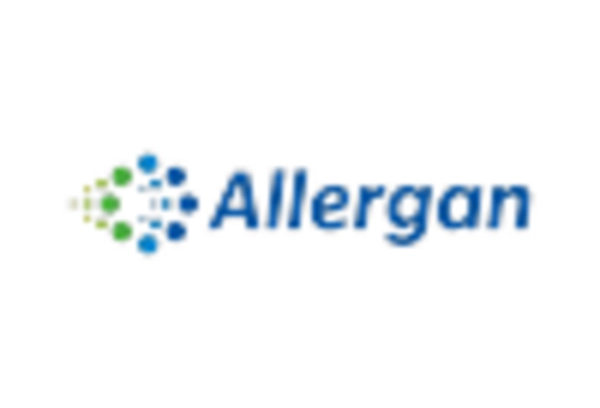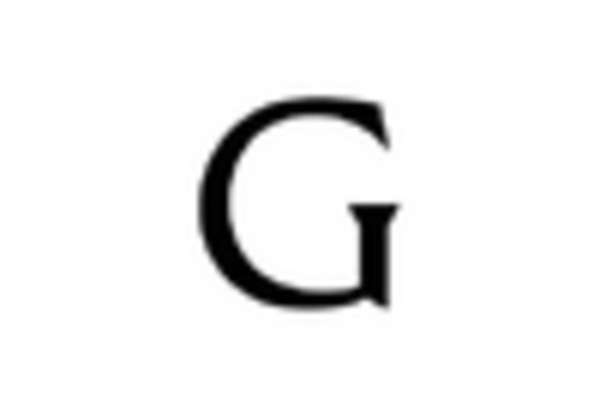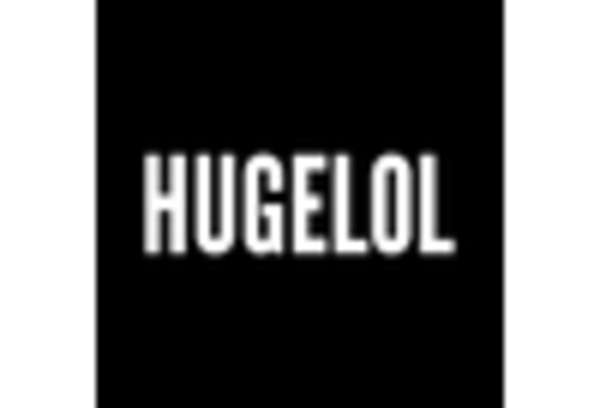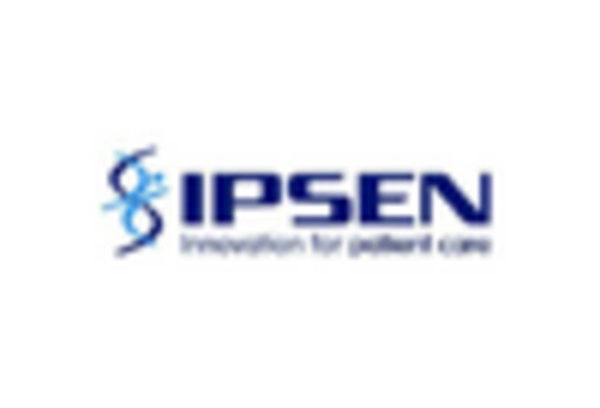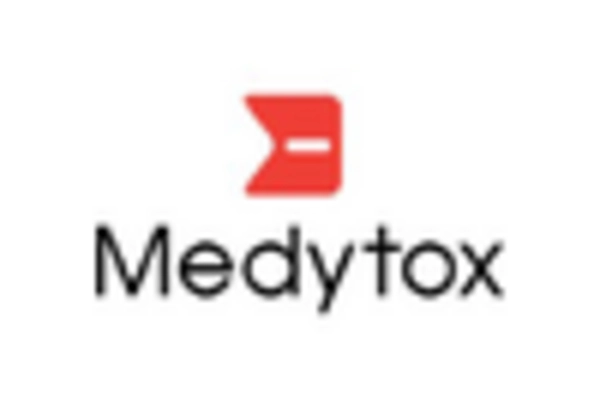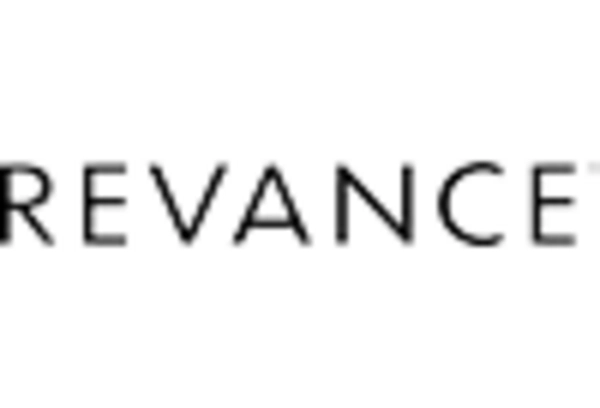Cultural Shifts Towards Self-Expression
Cultural shifts in Japan are increasingly promoting self-expression and individuality, significantly impacting the lip augmentation market. The younger generation, in particular, is embracing cosmetic procedures as a means of enhancing personal identity. This trend is reflected in the rising number of clinics offering specialized services tailored to individual preferences. Market data suggests that the lip augmentation market is growing at an annual rate of 15%, driven by this cultural acceptance. As societal norms evolve, the demand for lip augmentation is expected to continue its upward trajectory, reflecting a broader acceptance of cosmetic enhancements.
Influence of Beauty Standards and Trends
The lip augmentation market in Japan is heavily influenced by evolving beauty standards and trends. The increasing visibility of plump lips in fashion and media has led to a heightened desire for fuller lips among consumers. This phenomenon is particularly pronounced among women, who often seek to align their appearance with contemporary beauty ideals. Market analysis indicates that the lip augmentation market is projected to grow by 20% over the next five years, as more individuals seek procedures to achieve these desired aesthetics. This trend underscores the significant impact of societal perceptions on cosmetic choices.
Increasing Demand for Aesthetic Enhancements
The lip augmentation market in Japan experiences a notable surge in demand for aesthetic enhancements. This trend is driven by a growing societal emphasis on physical appearance, particularly among younger demographics. According to recent data, approximately 30% of individuals aged 18-34 express interest in cosmetic procedures, including lip augmentation. This increasing demand is further fueled by advancements in technology, which have made procedures safer and more effective. As a result, the lip augmentation market is witnessing a significant rise in both the number of procedures performed and the variety of available options, catering to diverse consumer preferences.
Expansion of Cosmetic Clinics and Accessibility
The expansion of cosmetic clinics across Japan is a pivotal driver for the lip augmentation market. With an increasing number of facilities offering specialized services, consumers have greater access to lip augmentation procedures. This proliferation of clinics is accompanied by competitive pricing strategies, making treatments more affordable for a wider audience. Recent reports indicate that the number of cosmetic clinics has increased by 25% in urban areas, contributing to the growth of the lip augmentation market. As accessibility improves, it is anticipated that more individuals will consider lip augmentation as a viable option for enhancing their appearance.
Technological Advancements in Cosmetic Procedures
Technological innovations play a crucial role in shaping the lip augmentation market in Japan. The introduction of minimally invasive techniques, such as hyaluronic acid fillers, has transformed the landscape of cosmetic enhancements. These advancements not only enhance the safety profile of procedures but also improve patient satisfaction rates. Recent statistics indicate that over 60% of patients report high satisfaction levels following lip augmentation treatments. As technology continues to evolve, the lip augmentation market is likely to expand, offering new solutions that appeal to a broader audience seeking aesthetic improvements.
